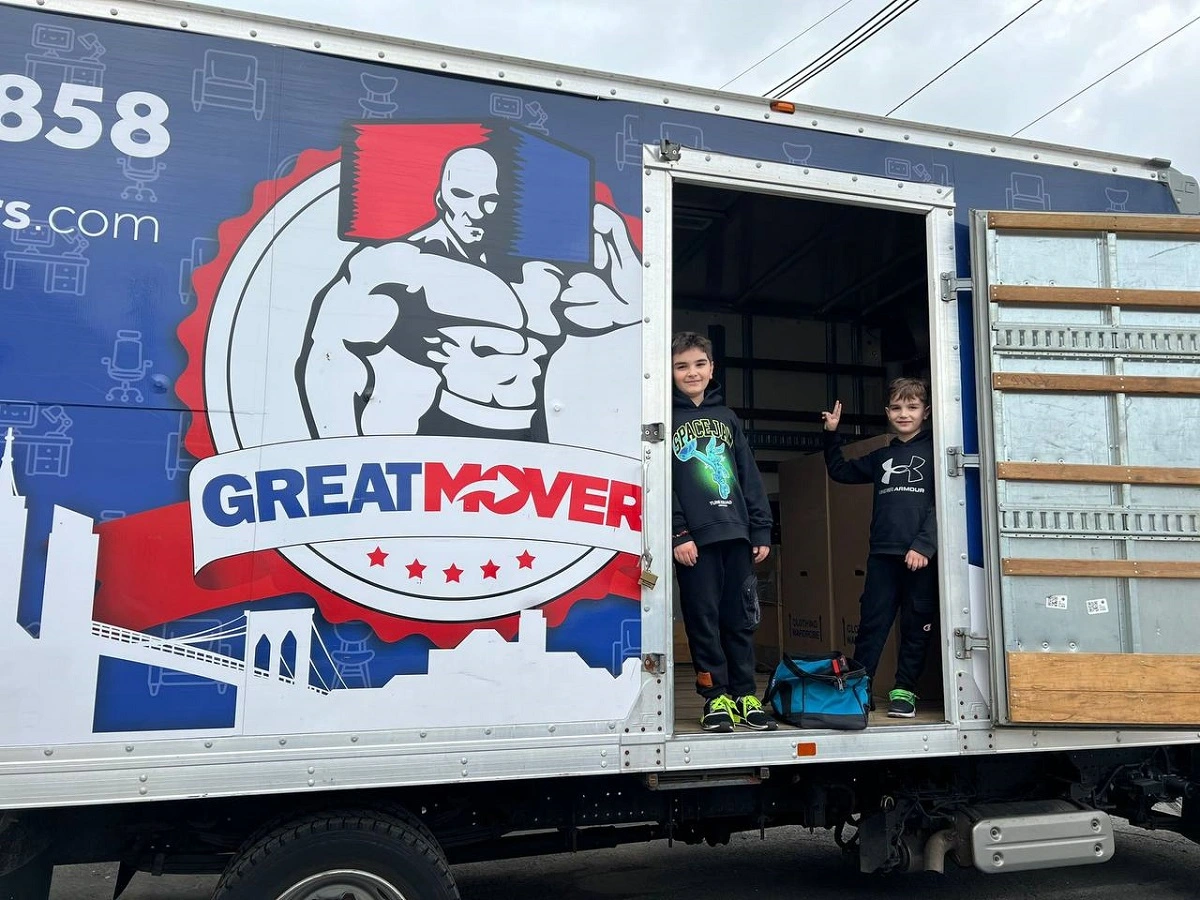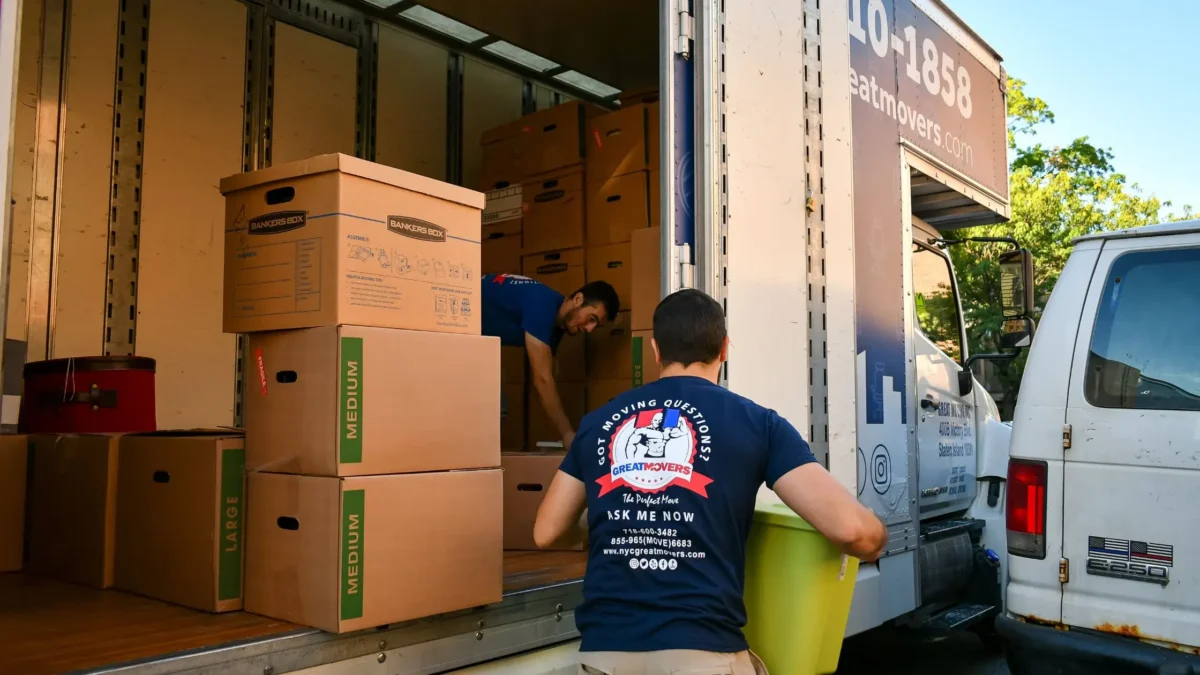Are you planning on moving to a new place in New Jersey? A cursory Google search will turn up dozens of options which can lead to analysis paralysis. The more options you have, the harder it can be for you to decide which one to choose. While this might not be an issue for non-pressing purchases, choosing a reliable NJ moving company is crucial if you want a seamless transition to your new home. After all, you’re trusting them with your belongings! In order to find the best moving companies in NJ, it’s important to set aside some time to do proper research and vetting if you want to avoid potential issues and scams down the line. Not sure how to start? This handy guide walks you through how to choose the best NJ movers.
Ask People You Know
Word-of-mouth is still king. Before you even look online for NJ moving company reviews, ask your friends, family, and coworkers for their first-hand experience. White you don’t need to give them the third degree, you should ask them about what it was like working with the moving company. Were they communicative, on time, and professional? Did they damage anything and if they did, how did they resolve the issue? Did their initial quote match the final bill? All of these can help you narrow down your choices before you start doing your own online research.
Of course, just because one of your friends had a good experience doesn’t mean that other people felt the same way. Even bad moving companies can get it right sometimes! But asking for referrals is a good start so you can narrow down your choices.
Check for Licenses and Insurance
All professional NJ moving companies must have the appropriate licenses and insurance in order to legally operate within the state. These include mandatory registration with the United States Department of Transportation (USDOT) to receive a USDOT number, a unique identifier that allows the government and consumers to Current and new address
- Estimated size of move it or access the company’s compliance, inspections, crashes, etc. In order to receive the USDOT number, companies must have proof of up-to-date insurance. On top of this, NJ movers must be licensed by the Division of Consumer Affairs, which supplies standards that companies must abide by including minimum insurance coverage, fitness standards, contract requirements, and claims procedures.
Most reputable NJ companies will display their USDOT number on their website so you can easily look them up. If they don’t have the information, you can call them up and ask or you can call the NJDOT or New Jersey Warehouse and Movers Association for updated details on the company.
Hire Local Movers
Experienced NJ movers can make the process seem easy. They will know exactly how to navigate the crazy New Jersey traffic as well as all the laws for parking and moving into apartment buildings and/or homes. Need to deal with a flight of stairs? The best NJ moving companies have got you covered. More importantly, hiring local movers means you’ll be less likely to be tricked into a scam. On top of that, if you can find something local to either your new or old address, you’ll also save money. Local moves charge by the hour and they start charging you the minute they leave their warehouse and will stop the clock once their trucks are back on site. That means the further away they need to drive in either direction, the more you will need to pay and the more chances there will be for the movers to run into traffic or other issues. Narrowing your search to more local companies can save you a hundred dollars or more!
Do Your Research!
Even if you get recommendations from other people you still need to do your due diligence. Luckily, you can perform most of this online by looking at various online review sites like Google, Yelp, and Facebook. If a company has been in business for a long time, they will have hundreds of reviews from satisfied and not-so-satisfied customers. Read as many as you can and pay special attention to the negative reviews to see if there is a trend in the complaints. If a lot of people are complaining about poor service, damaged belongings, or surprise fees you might want to move on to the next company.
In addition to online review sites, check out the Better Business Bureau to see if the company has a report. Check out the letter grade and read any complaints, reviews, and government actions. You can also review the company’s complaint history on the USDOT website by entering the USDOT number in the search bar.
Call the Company
Once you’ve narrowed down your choices to three options, give them a call to discuss their services and rates. Do NOT send them an email as the purpose of the call is to assess their professionalism and communication skills. Pay close attention to how they answer their phone when they pick up. They should say the company name, not their name. From there, walk them through what you need for the move including things like:
- Moving date and time
- Additional services
- Bulky furniture/times
- Flights of stairs they will need to walk up
- Your budget
The more information you can provide the more accurate the mover’s estimate will be. While talking to them, don’t forget to ask questions! This could be from terms they use that you aren’t familiar with to the types of services they provide including providing packing materials, plastic bin rentals, and so on. Trustworthy NJ movers will be more than happy to answer any of your questions and will work with you to find a way to match your needs and budget. If the person on the other end seems annoyed, avoids your questions, and/or tries to pressure you into handing over your credit card information, move on. It’s a clear sign that the company is not professional.
Book Your NJ Movers
Finding a moving company can be daunting, but with these tips you should be able to narrow down your search. Always get an estimate from each of the companies to compare the prices and services they offer. If one seems significantly cheaper than the others, chances are you’ll be hit with a lot of hidden fees at the end. Most companies should be around the same price give or take a few dollars. If it’s still out of your budget, ask if they can provide some kind of discount. This is especially effective if you’re moving between October through April as fewer people move during this period. Once you’re happy with your research and the estimate, make sure to book as soon as possible so you don’t miss out on your preferred date and time.
If you’re looking for a reputable company, give NJ Great Movers a call! We have an almost 5-star rating on all review platforms. Our crew will work with you to make your move as easy as possible.



